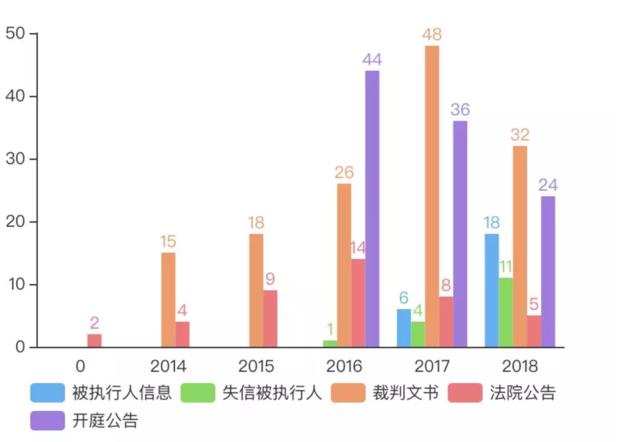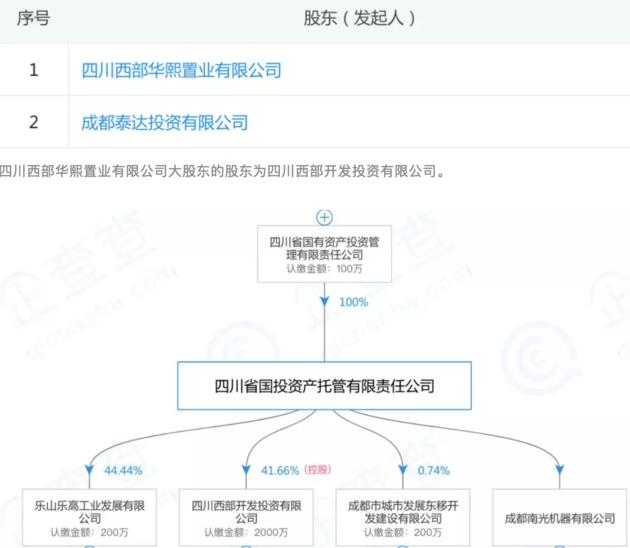From now on, Zou Yaqi entered a behavioral experiment with the goal of living in Beijing for 21 days without spending money.
It was 0: 00 on May 1st, and she walked out of the gate of the Central Academy of Fine Arts armed to the teeth, wearing a sable coat, carrying an imitation brand-name bag and stepping on a pair of shallow black shoes. For this graduation project, Zou Yaqi, a student from Central America, carefully prepared herself and dressed herself like a "celebrity".
For the next three weeks, she sneaked into the first-class lounge and enjoyed a free buffet three times a day; Also use the excuse of "waiting for friends" to get free snacks and fruits in hot pot restaurants; Even prepare a reason to "catch a rape" and mix it into the hotel lobby for the night. When she dressed up as a single "rich woman" and visited the auction site, the security guard politely helped her hand over water and take pictures; After sweeping half a plate of white chocolate, the waiter asked her if she needed more.
All these were filmed by Zou Yaqi and played in her graduation exhibition. This behavior experiment of wandering in the gray area and occupying "surplus materials" has also caused controversy and more discussion.
In the author’s view, "some people can use his materials, and very few people can live with the surplus materials", and she is a "very few people". Mastering the information of free resources, cheap and "beautiful" goods sales channels and having a decent appearance may be the prerequisites for this experiment to achieve its goal. This inevitably makes people think that "very few people" have more materials, while some people who need "materials" more are lacking in many ways.
In 21 days, Zou Yaqi’s identity has never been seen through, which is another topic triggered by the experiment.

Zou Yaqi The pictures in this article are all provided by the respondents.
[The following is Zou Yaqi’s dictation]
In August 2017, when I received the admission notice from the Central Academy of Fine Arts, I felt embarrassed and a little afraid.
Many people say that "graduating from the Academy of Fine Arts means being unemployed", and I am afraid that I have dreamed a dream and failed to live an ideal life afterwards.
I began to pay attention to the problem of living in Beijing, and I found that the housing price and rent in Beijing were difficult for young people to afford. If after graduation, I am engaged in a job that is barely related to my major, with a monthly income of 10,000 yuan, and renting a house may cost 4,500 yuan. I can only rent a small room with a separate bathroom, excluding utilities and other living costs.
So I will think deeply, can I survive in Beijing without spending money?
From May 1 ST to May 21 ST, 2021, I practiced this idea in my graduation creation, and spent 21 days in Beijing without spending money, and I was as elegant as a "celebrity". I shared the creative process on social media, and when I met the voice of controversy, I praised the other party, which showed that the other party had some thoughts. Some people say that I am a "real celebrity pretending to be a fake celebrity pretending to be a real celebrity", but it is not. Why do I look like a celebrity? It is carefully designed.
First of all, in terms of clothing makeup, I want to create a state of money and leisure. My friend sponsored a velvet sportswear, which is a designer brand. Another friend sponsored a fake brand-name necklace. I bought a fake brand-name bag of 2700 yuan with the start-up fund sponsored by my mother. When I bought it, the seller told me that the counter sister couldn’t tell it was fake. I also prepared a 10 yuan-made mini splint, hair oil, shampoo, a Lancome beauty box and some makeup remover wipes. Lancome beauty box is a temporary product, which only cost 100 yuan.
In my life, I have never been in contact with celebrities. I paid attention to some bloggers on social platforms who are more in line with the stereotype of "celebrities" and learned their dressing. For example, I pay attention to a little girl after "00". She often wears delicate makeup, drinks afternoon tea with other sisters in the hotel or goes on vacation, shares her dress in the video, and shows beautiful diamond rings and watches. My makeup is also imitating bloggers, mainly in black, white and red. I will substitute myself into the environment and imagine myself as a rich and idle socialite.
But I will dress up as a different person on different occasions. If I want to sneak into a first-class lounge, a five-star hotel or an auction house, I have to dress up as a celebrity, because there are more surplus materials in these places, and it is easier for a celebrity to get in touch with the surplus materials. In Haidilao, IKEA and supermarkets, I will play other roles.
I made a 21-day trip plan and visited nearly 100 places for food, clothing, housing and transportation. Only 20 places may actually come in handy. In terms of food, I stepped on some supermarkets, some of which had a lot to try. I also found the opening ceremony of the art exhibition, because the snacks at each opening ceremony are very delicious, and usually there will be a dinner on the opening day, so I will collect these surplus materials.
In terms of accommodation, I have visited all the places that are open 24 hours a day. At that time, due to the epidemic, bookstores and cafes that were open around 24 hours were basically closed, leaving only one coffee shop still open. I stayed there at night and rested on my desk, where free water and sugar were provided. Hotels, first-class lounges and other places can also spend the night. I tend to choose hotels that are close and rich in oil and water, such as during the opening of auction houses and art exhibitions, but gallery week is held in mid-April, and there are fewer art exhibitions in May.
21-day survival experiment
At 0: 00 on May 1st, I set out from the Central Academy of Fine Arts with two mobile phones and a mini tripod, one of which was pinned to my belt for shooting. Fake brand-name bags contain beauty boxes, seven pairs of disposable socks, 20 pairs of disposable underwear, and some washing products.
I’m wearing a velvet tracksuit and a sable coat, and I don’t have a change of clothes-I can’t carry so many things, and there are some surplus materials to use. I make a list in advance, the return period and conditions of different clothing brands, for example, some require that clothing cannot be worn; Some products can be returned within 30 days as long as the tag is complete and the clothes have not been cleaned.
The first stop after leaving school, I went to a maid bar near the school. I watched anime since I was a child and liked this Japanese culture. I explained my whole plan to the owner of Maid’s Bar. He asked me to help promote the exhibition, allowed me to sleep in the bar at night during the exhibition, and helped me buy a plane ticket to 190 yuan, and reimbursed my fare to and from the airport.
On May 4th, I entered the first-class lounge with a fake exchange card printed in advance. At first, I was very nervous and felt that I didn’t belong there. I stayed in the lounge for three days, and I quickly adapted to the identity of a "celebrity". In the lounge, the buffet is opened three times a day, and I get a lot of food for each meal. The staff in charge of clearing the table didn’t say anything, they were just busy with their work.
The VIP lounge downstairs is GUCCI’s shop. I told my sister, "My things are scattered all over the floor. Can you give me a bag? If I have time next time, I will come to spend. " Sister Gui hesitated. She might think it strange that I suddenly asked her for a bag, but she gave me one anyway. I improvised this speech, maybe I was too reckless. Later, I learned that GUCCI bags were sold in 20 yuan on Taobao, and the process of asking for them for free did not exceed one and a half minutes.
On May 8, I returned to Wangjing after leaving the airport. In Haidilao, I didn’t maintain my sense of identity as a celebrity, but pretended that I was "waiting for a friend". The staff sympathized with me, and with basic goodwill, they offered me dumplings and fruit. Seeing me sitting alone outside the restaurant will make me go to the sofa to have a rest. Everyone is busy with their own affairs, but they are very human.
My friends are also very interested in my creation, and they also want to experience it. When I was at IKEA, I chose a model room with a lot of pillows on the bed to lie down, and my friends slept next to me. We tried to sleep flat in it without being seen by the staff.

Zou Yaqi is resting at IKEA.
At the exhibition of the Art Museum of the Central Academy of Fine Arts, I got a free barbecue, spent the night in an exhibit car made by my seniors, and washed my hair in the disabled accessible bathroom. When friends are tired of playing, they go to spend money to eat. I sit next to them and they eat theirs, so I continue to eat my own snacks.
On May 11th, I decided to walk from Wangjing to downtown (the whole journey is nearly 20km). I was so tired that I downloaded a dating software, hoping to get a ride to the hotel and dump each other in the hotel lobby. But the five or six people in the match may think that such a beautiful girl won’t agree to go to the hotel so soon, like a fairy dance, and the plan will fall through, so I went to the lobby of Guizhou Building to sleep for one night.
After arriving in the city center, I went to the auction site of a five-star hotel. What impressed me the most was that I met a very attentive security brother. He left his job, sent me tea, coffee and water, and took the initiative to take pictures for me. I didn’t give him any hints, but I just looked like a single rich woman who went alone. He wanted to add me to WeChat at that time. I didn’t want to disappoint him, and I was a little looking forward to what he would say to me next. On WeChat, he asked me questions, "Which collection did my sister buy? What is Sister doing today? Is sister tired from work? "I didn’t reply to him and felt a little guilty.
At another art auction night, I got an invitation from a friend. There are white chocolate and foie gras snacks on site. I ate half a plate of white chocolate, because I was so hungry, the staff asked me, "Is it delicious?" I said, "It’s delicious." The staff asked me to eat more, and if it wasn’t enough, he asked the kitchen to send some more.
During these 21 days, I didn’t have a good rest and was in a very tired state. Originally, I wanted to go to different places by car, but everyone didn’t trust me. I only got a car once. On the evening of 20th, I met a nice collector at the auction night of the hotel. I told him, "My mobile phone is dead", and the other party helped me deliver it to a hotel near Wangjing. In the car, I was quite nervous and exchanged a few commonplaces about the auction that night.
In the evening, I spent the night in different five-star hotels. I imagined that if I was questioned about why I stayed in the lobby all the time, I would explain it to the staff with the reason of "catching rape". But no one came to ask. The only time I was asked was when I was sitting in the consumption area of the hotel lobby waiting for the auction to start. I said that I had just checked out and was studying the album of the auction. When my friends came, I was not disturbed again.

Hotel swimming pool photographed by Zou Yaqi.

Zou Yaqi is in the hotel gym.
Taking a bath in the hotel, I signed the name of the character in The Romance of the Three Kingdoms before, until the third time I signed "811 Tohsaka Rin", one of my favorite cartoon names, and the hotel waiter felt abnormal. After verification, I found that there was no such person. The waiter was a little flustered, and I explained to her, "I didn’t renew the fee, but I want to make up my makeup before the date." Maybe I didn’t cause her any trouble, so she gave me a hand.
In 21 days, the best experience was that I took in a kitten. I passed a painting shop, and there were two cats at the door. I thought they were wild cats, so I took out some food from the hotel for them to eat. The proprietress of the painting shop told me, "If you like cats very much, they have a litter, you can take one with you."
I used to have a cat at home, but now they have a good relationship and live with me every day.

Zou Yaqi took away one of the kittens.
"I’m not a celebrity"
In real life, I am not a "celebrity".
I was born in an ordinary middle-class family in Hunan, and I have never bought luxury brands such as Hermes and GUCCI. But I am very good at shopping. I may spend ten dollars on Valentino shirts-like there are charity shops near international schools and villas, and some people donate their things to this place and sell them for charity.
My friends and I have some strange shopping channels. For example, if I want to buy a satisfactory coat, others may only use Taobao. I may use Alibaba Wholesale Network, Idle Fish, Pinduoduo, Taobao, JD.COM, and even go to auction websites and Yahoo auctions abroad. When we study art, we will prefer beautiful things, and my friends and I are relatively poor, so we will try our best to buy good things at low cost.
My parents, like most parents, were urging me to take the teacher qualification exam a few months ago and go back to my hometown to be a middle school teacher. They mention this to me every year, and I say, "OK", but I should not take the exam, or take a certificate to deal with them. They seldom affirmed my works until some time ago, when my parents came to Beijing to attend my graduation exhibition and graduation ceremony. Mom read the report about the details of my work, and then slowly understood why I made such a work.
In my life, I seldom try role-playing, perhaps because people around me are too familiar with me. But in high school, I played tricks on my deskmate. My deskmate is an autistic girl who doesn’t want to talk to me, so I told her that I have a twin sister and told her what is the difference between me and my twin sister. One day, I disguised as a twin sister and appeared at the door of the classroom. She was very surprised and spoke to me for the first time. "Wow! You are a sister, aren’t you? " Later, when she knew that I had fooled her, she stopped playing with me.
When I was a sophomore in high school, I attended an art pre-test class in Beijing, where only teachers were allowed to take the elevator, and students were not allowed to take the elevator. When cooking, I gave the teacher big drumsticks and gave the students small drumsticks. I pretend to be a substitute teacher, so that I can take the elevator, get in and out of the closed campus freely, and give me more food. Because many college students will come to the pre-test class to teach, at that time, I was only one or two years away from college students, and I was dressed beautifully, and I was not seen through.
At Daxing airport, I was still nervous about changing the brand with the pre-printed first-class lounge, and then I became more and more relaxed. I even felt less and less like myself, and it took me a long time to recover. For example, when I go to a coffee shop, I think there are free boiled water, free ice cubes, free sugar and yellow sugar, and free paper towels. I see that the business hours are until 12 o’clock, which is great, a bit like an occupational disease.

Free food packed by Zou Yaqi.
Usually, I am quite afraid of socializing, which is a relatively closed state for most people. When I meet each other for the first time, I may pretend to be enthusiastic, and after a few commonplaces, I will run away in fear. But for this graduation project, I need to give up.
One morning, I mixed into the restaurant of the hotel to have breakfast, opposite a table of Beijing grandfathers, and I deliberately and blatantly ate and took it. At that time, it was a little bad. I thought uncle Beijing’s reaction would be very interesting. A glamorous girl actually "stole" something.
If I am detained, I will obey the law. I haven’t discussed the possible detention with my tutor, but I think they can understand that there is a fierce conflict, which can bring a deeper thought to my work. I avoided it very well, and only a little conflict went smoothly. I think this is also true, and only in movies will there be fierce conflicts.
Surplus Materials, Instances and Eternity
At the graduation exhibition, I prepared a sofa where 12 people can sit, so that people who watch the exhibition can rest on the sofa when they are tired. I also thought about secretly preparing some wine, because I lived outside on free wine for several days. I even thought that people in need could sleep under my booth, but for safety reasons, I only kept the idea of sofa.

Zou Yaqi’s booth
I want to share my sofa, wine and booth with you and give back the social resources I have used in these 21 days. Of course, there is also a little selfishness. I hope everyone can sit down and read more of my works.
I also designed a "mission must be achieved" link, and left a lot of post-it notes on the booth. I hope you can leave your wishes and I will help you realize them. This link comes from my tutor’s suggestion. The teacher thinks that I have taken 21 days of social resources and have to return them. This is out of consideration for the integrity of a work, and it also sublimates the theme of the work.
In the link of "mission accomplished", I divided the collected pieces of paper into three categories. One is that I can help the other person do it. For example, if someone wants to adopt a dog, I will recommend an organization that adopts stray animals to him. If someone wants to see me go to Starbucks in my pajamas, this is also well done, so I will do it. The other is that I need to answer questions on the note. For example, a child drew a maze and hoped that I could get out of it, but I didn’t get out halfway, so I wrote at the bottom, "Sorry, I didn’t get out of your maze." There is another kind that I can’t do. For example, someone makes a wish, "I also want to be admitted to the Central Academy of Fine Arts", "I hope I can succeed in the postgraduate entrance examination" and "I hope I will be with someone forever", so I can’t help him realize it, so I just collect them.
At the beginning of the graduation exhibition, I met a grandmother. She looked through my graduation brochure, which was marked with the title of "Bai Piao celebrities’ 21-day harvest in Beijing". She suggested that I change the "whoring" of "Bai Piao" to "drifting". I think this idea is great.
Some visitors also suggested that if I were a man or an unattractive girl, I couldn’t do it in 21 days. But I think if you are a middle-aged man, there must be other ways to disguise yourself.
I named this work "Instantaneous Ownership" and wanted to discuss the relationship between instantaneity and eternity. For example, on the evening of 20th, I monopolized the lobby of a five-star hotel with nearly one acre of land. Thousands of dollars of flowers were displayed in the hotel, just like I had them in an instant.

The lobby of a hotel is filled with roses.
The surplus materials I used in these 21 days can’t be said to be loopholes or waste. It is a gray area and a middle room. Some people can use his materials, and very few people can live with the surplus materials. In these 21 days, I am that very few people.
But I didn’t talk about the "fake celebrity experiment". Maybe some marketing numbers focus on promoting my identity as a "fake celebrity", which is an eye-catching explosion. "Celebrity" is just an important identity that I play. It is easier to build trust with others and get surplus materials, but I will play different identities on different occasions.
If there is any regret in this creation, it may be the 21-day time limit. I haven’t done it thoroughly enough, because I have to consider later exhibition and video editing. If I had to do it all over again, I would definitely like to dress up as a real celebrity and meet more unexpected resources. I think it would be more exciting.
Now, I have been signed by an art organization, and finally dare to say my ideal of being an artist. Recently, many media have interviewed me, which has also brought me a certain sense of accomplishment. I have entered the next stage of my creation. At present, I am shooting an image to express the topic of Orientalism. My new work will be exhibited in Ginza, Tokyo, Japan on October 28th. I have opened some accounts on social platforms, and I want to post the 21-day complete experience on the Internet, and I will also update my next works, because the Internet is a way for the public to get in touch with art, and I hope to be an art disseminator.



















